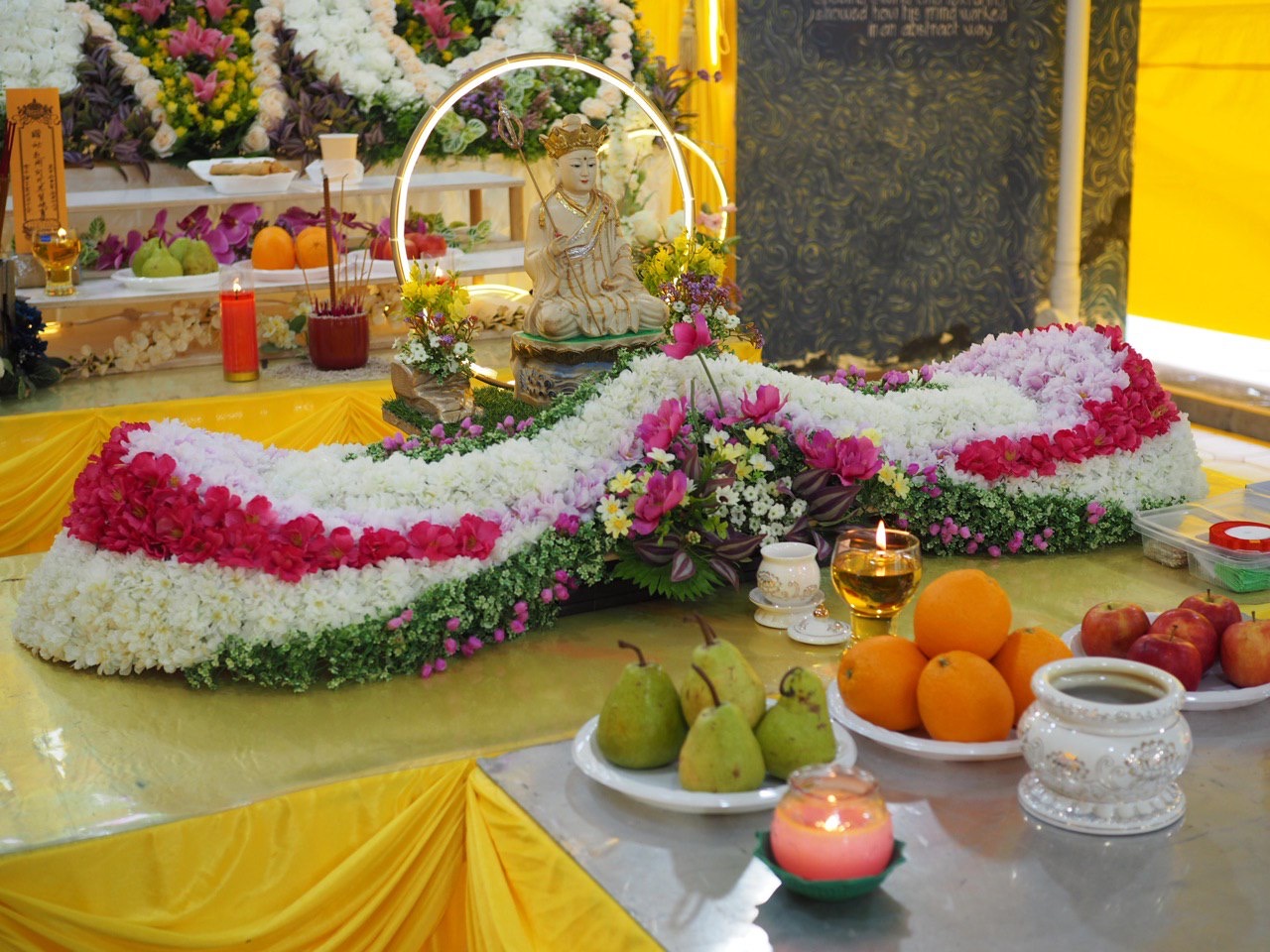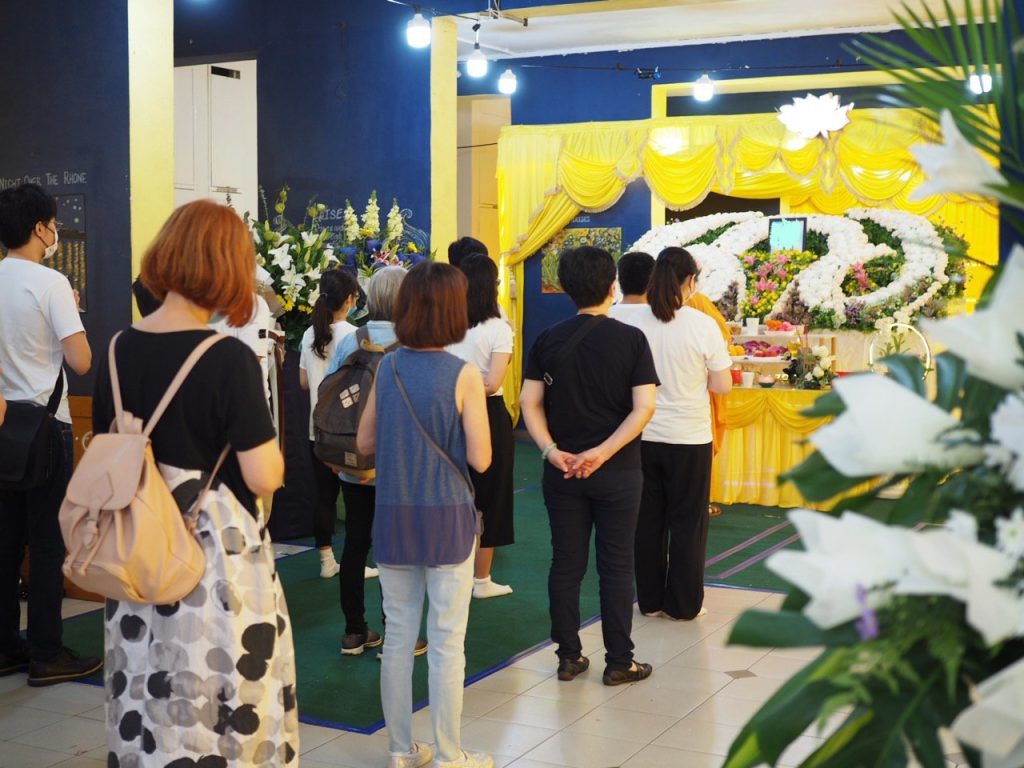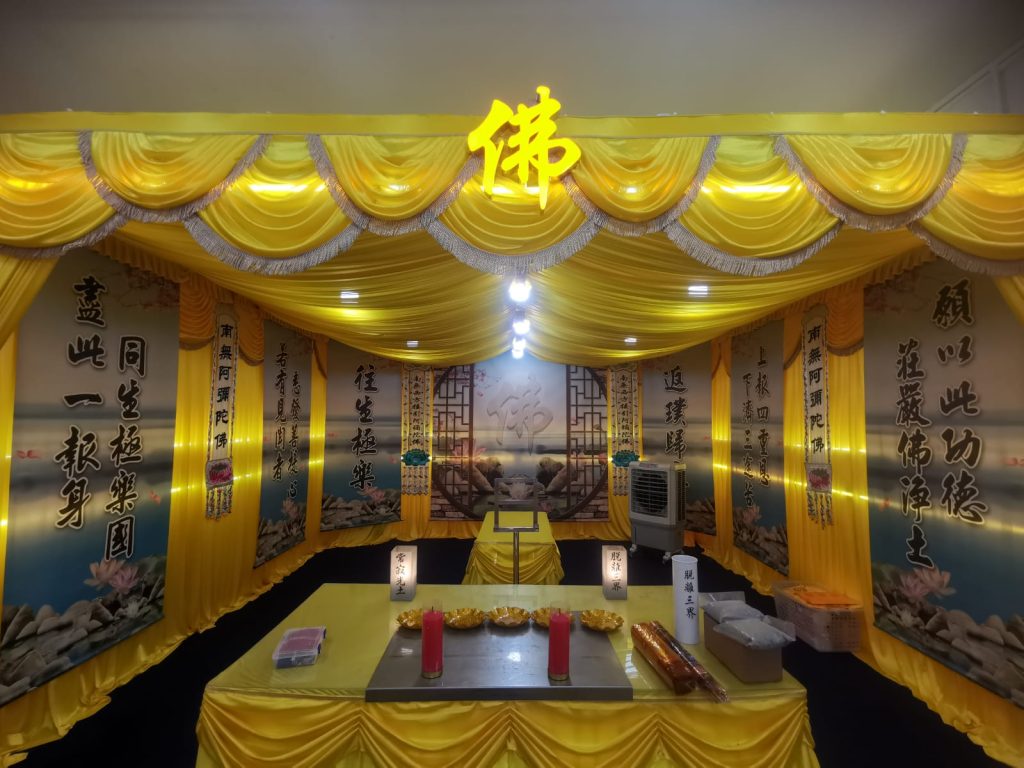
Buddhist funerals are a blend of spiritual, cultural, and traditional practices that provide comfort to the bereaved and help guide the deceased on their journey to the next life. In Singapore, where Buddhism is a major religion, these funerals hold deep meaning, reflecting both ancient beliefs and local customs. Preparing for such a solemn event can be daunting, especially if you’re not familiar with Buddhist traditions. Here’s a comprehensive guide to help you understand the key aspects of a Buddhist funeral in Singapore.
In Buddhism, death is not seen as the end, but as a transition from one life to the next in the cycle of rebirth. The ultimate goal for many Buddhists is to break free from this cycle and attain nirvana, a state of enlightenment. The funeral serves two primary purposes: to honour the deceased and to support their spiritual journey, ensuring a peaceful transition to their next life.

Buddhist funerals vary slightly depending on the sect—Theravada and Mahayana being the two dominant branches in Singapore. Theravada funerals are typically simpler and focus on the teachings of the Buddha, while Mahayana ceremonies might involve more rituals, chanting, and symbolic offerings. In Singapore, the majority of Buddhist funerals are influenced by Mahayana traditions, though elements of both practices can often be found.
When a death occurs, the first step is to contact a local Buddhist funeral service provider. They can help coordinate the logistics of the funeral, including transportation of the body, arrangement of the wake, and scheduling monks for prayers. It is also important to inform the deceased’s temple or monk, as they will play a key role in the ceremonies.
The body is usually cleaned and dressed in simple clothing, and placed in a casket at the wake venue. This begins the process of honouring the deceased with rituals and prayers.
There are several funeral homes in Singapore that specialise in Buddhist funerals. They offer various packages that include the essentials—such as preparing the body, providing the casket, arranging for monks, and facilitating the cremation or burial. Be sure to choose a funeral service provider that respects your family’s traditions and offers transparent pricing. Funeral costs can range from a few thousand to tens of thousands of dollars, depending on the complexity of the arrangements.
The wake usually takes place over three to five days, allowing family and friends to pay their respects. An altar is set up at the wake, often featuring a portrait of the deceased, along with offerings such as fruits, flowers, and incense. Family members and visitors offer joss sticks and participate in chanting sessions led by monks.
Traditionally, mourners wear white to a Buddhist funeral, as white symbolises purity and mourning in many Asian cultures. Black is acceptable, though it’s less common. Bright colours, particularly red, are considered inappropriate because red is associated with happiness and celebration. Always dress modestly, avoiding flashy jewellery or revealing clothing.

Throughout the wake, monks lead chanting sessions to help the soul of the deceased move peacefully towards its next life. Visitors can participate in these sessions by sitting quietly and respectfully, even if they do not know the chants. You may also see family members or close friends making offerings of food and flowers, symbols of letting go of worldly attachments.
The funeral ceremony itself is usually held on the final day of the wake. It typically involves more chanting and prayers, with offerings being made on behalf of the deceased. Family members may offer symbolic items, such as food and paper offerings, to assist the deceased in the afterlife. As a guest, you should follow the lead of the family and participate respectfully by bowing or joining in the chanting when appropriate.
In Singapore, cremation is the most common practice in Buddhist funerals, although some families may opt for burial depending on their beliefs. The funeral procession usually heads to the crematorium, where final prayers are conducted before the body is cremated. Family members may offer final farewells by placing flowers or other offerings into the casket. If burial is chosen, a simple grave-side ceremony follows.
The funeral marks the start of a 49-day mourning period in which family members offer daily prayers and make offerings to support the deceased’s journey. It’s common for relatives to prepare meals or burn paper offerings during this period. These symbolic acts are meant to provide comfort and help the deceased in the afterlife.
When attending a Buddhist funeral, it’s important to be respectful of the customs and rituals in place. Here are a few guidelines:
One of the most meaningful ways to support the bereaved family is by offering your presence. Simple acts, such as helping with the wake or just sitting with the family, can go a long way in providing emotional support. Financial contributions, known as “pek kim,” are also common, but it’s best to check with the family or the funeral director about the appropriate amount.
Dealing with the loss of a loved one is challenging, and Buddhist teachings offer a framework for processing grief through mindfulness and compassion. Buddhist philosophy encourages acceptance of death as a natural part of life. For the grieving family, it’s helpful to focus on positive memories of the deceased and find comfort in rituals that honour their journey.
Buddhist funerals in Singapore are steeped in tradition and serve as an important cultural and spiritual practice. They offer a meaningful way to honour the deceased and support their passage to the next life. By understanding the customs and rituals involved, you can prepare yourself to attend or organise a Buddhist funeral with respect and sensitivity, helping to ease the burden on the bereaved family and ensure that the deceased is honoured in accordance with Buddhist values.
